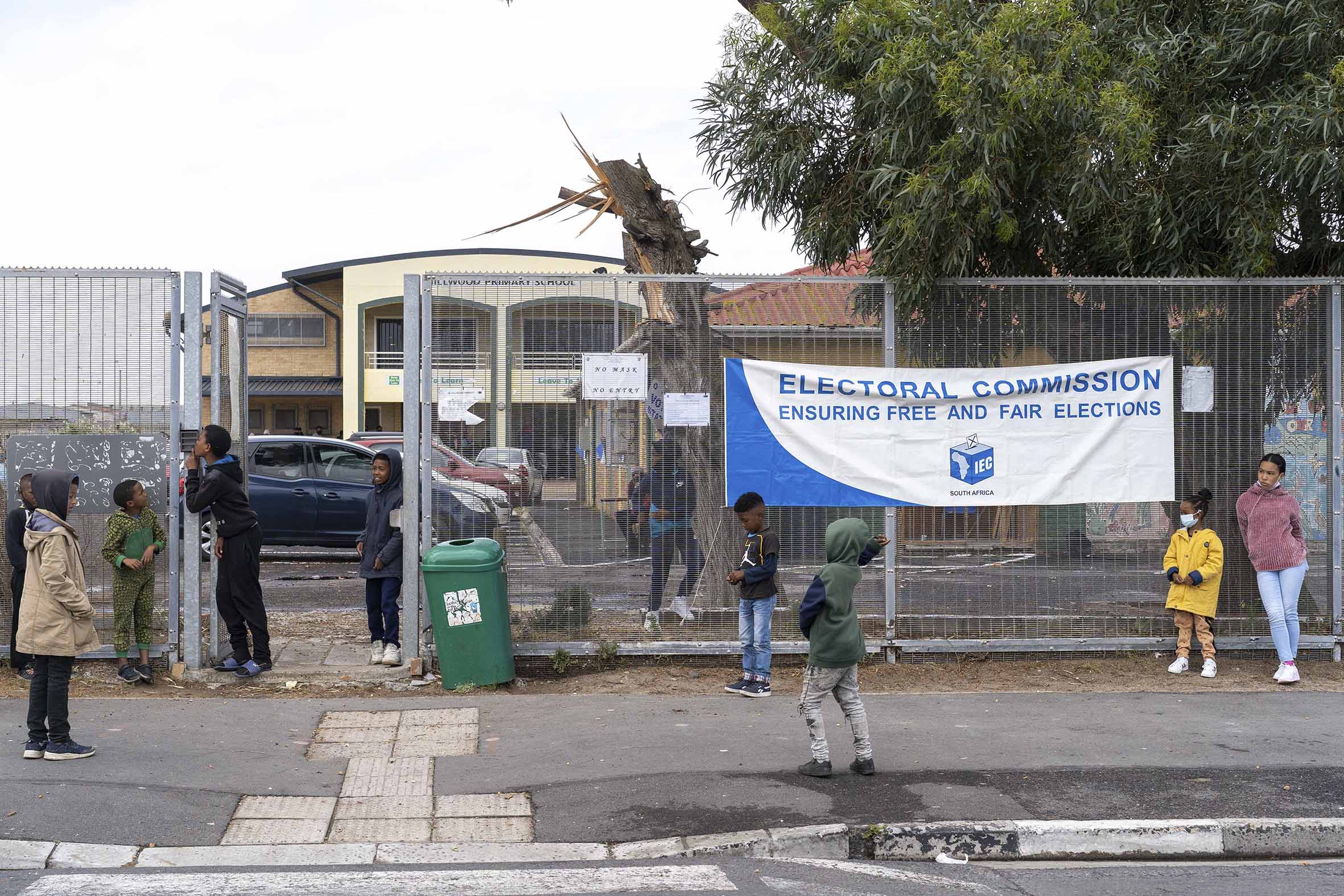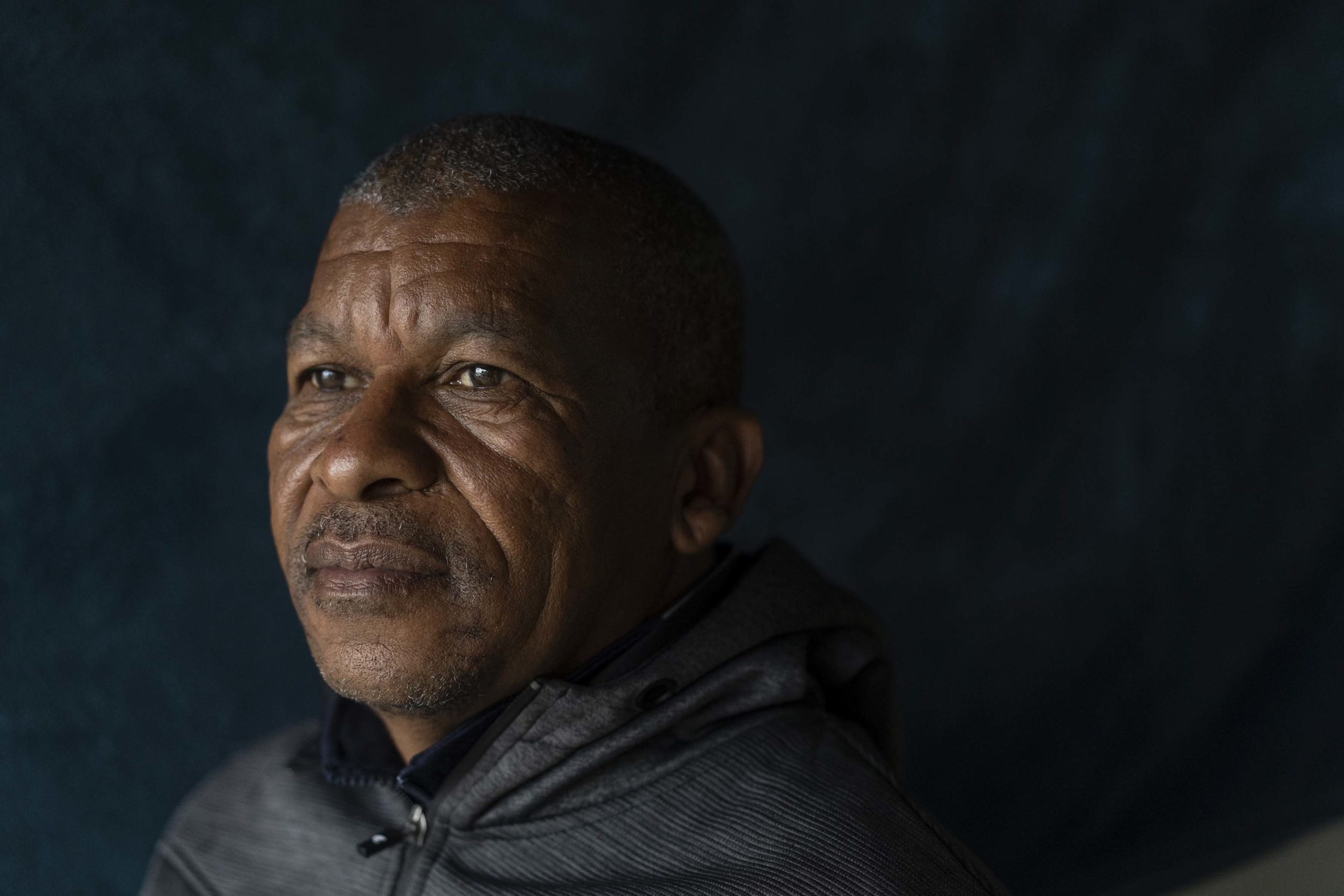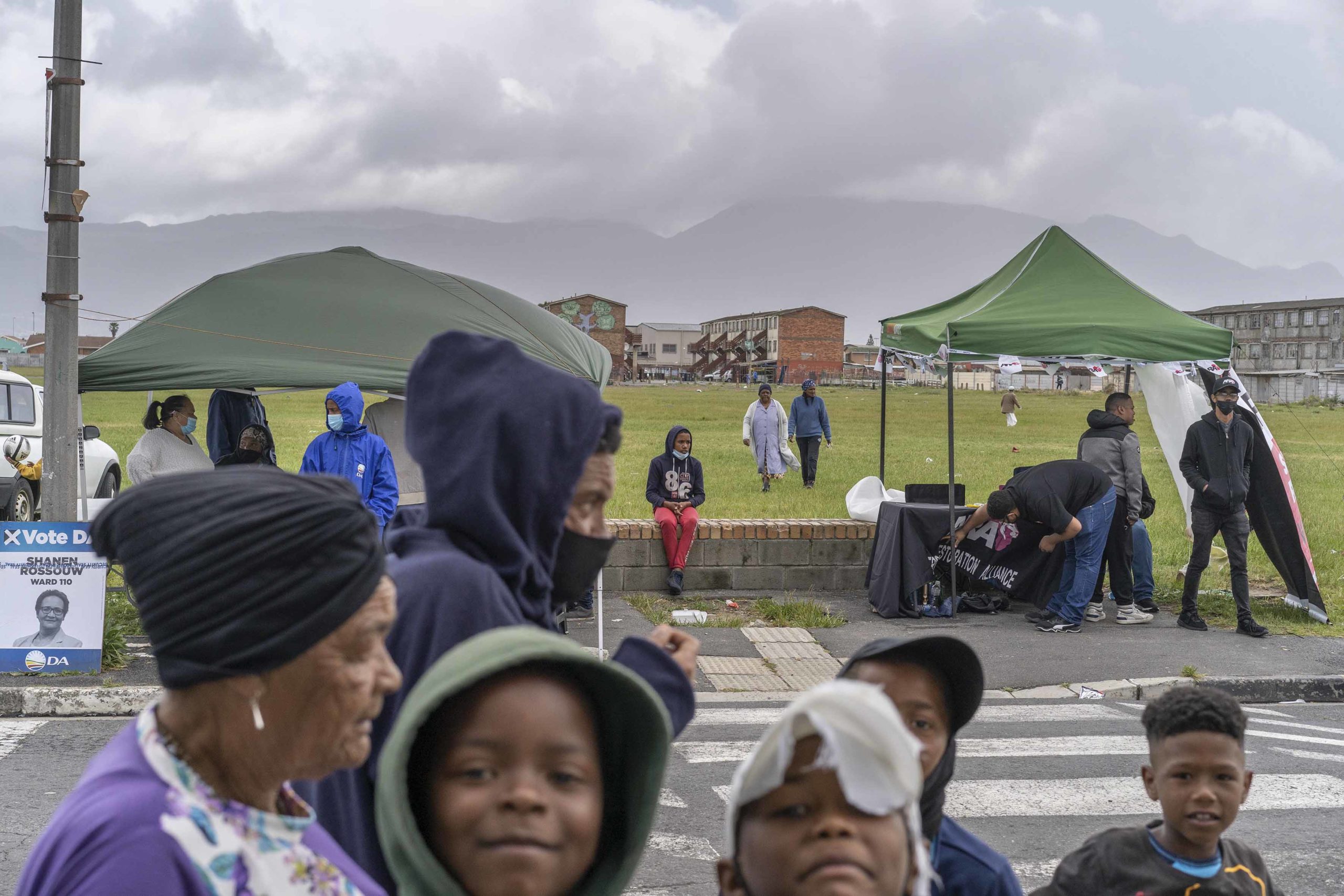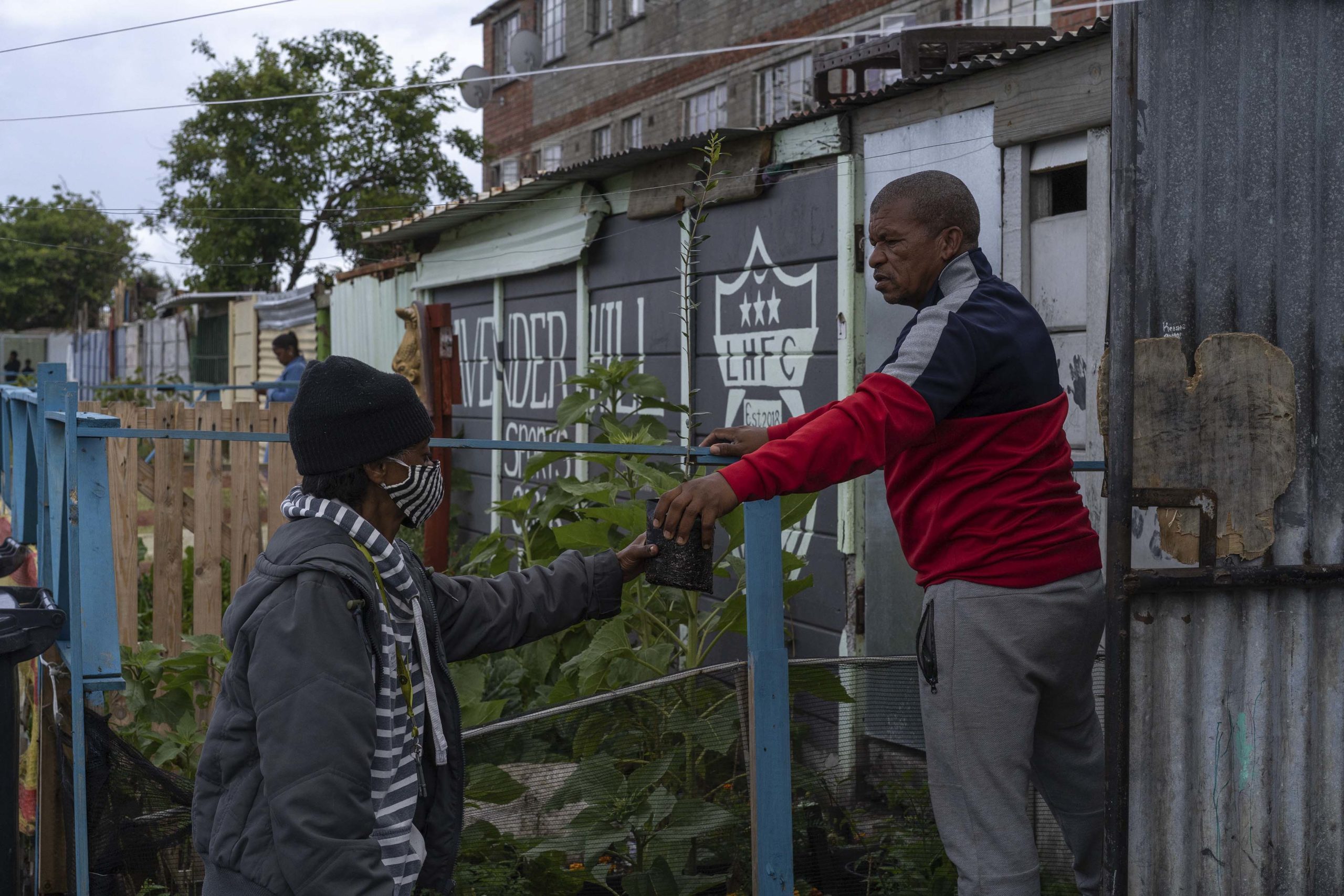Rain, hopes and fears on voting day in Lavender Hill
Mark Nicholson runs a foundation and feeding programme in the Cape Town township. He outlined the problems that residents faced on the day of the local government elections.
Author:
5 November 2021

It poured with rain in Cape Town on Monday 1 November and there was little movement in Lavender Hill, bar waste pickers and a few pedestrians. There were no queues at Hillwood Primary School but voters had trickled in all morning, keeping the electoral commission officers busy. The parties who had set up tables in front of the school covered them with plastic sheeting to try and keep their campaign material dry.
“A lot of people are not really interested in voting,” said Mark Nicholson from under cover in his front yard, about 120m from the voting station. “I’ve spoken to a lot of people who say, ‘Why must I vote? I’m worse off than I was 24 years ago.’ To be honest with you, I myself don’t know who to vote for.”
Nicholson is passionate about community work. The feeding programme he and his family run with volunteers from the area is well known. Most days, he interacts with those who need help the most in Lavender Hill, giving him a keen insight into the problems that plague residents.

“There’s not much that the government has really done for the people. I feel that our people have been betrayed.”
Housing is Nicholson’s main concern and it is one of the reasons people distrust the local government, he said. Overcrowding is prevalent, because of the lack of housing. Sometimes there are “20 people staying in one house, in a two-bedroom house. The living room becomes a bedroom. sometimes [they] even sleep in the kitchen.”
Others are forced to live as backyard dwellers for decades. Some have been on a housing list “since 2008, and then you find that other people move into houses. This is what people see.”
The gangs are winning
Gangs in the area recruit children as young as 11, said Nicholson. Pointing to a housing block across the field in front of his home, he said “all the children in that court walk around showing the signs affiliated to the gang that lives there”.
As one of the founders of the Lavender Hill Sports and Recreation Foundation, Nicholson sees sport and outdoor activities as a way to keep children and youths out of gangs. However, the rate at which children are recruited into gangs is too high for Nicholson and his foundation to stem the tide on their own.
He has been largely unsuccessful at getting access to some of the sports facilities in the area for the foundation. “If we can use the school halls and have these kids in these after-school programmes every day, the kids are not going to want to go back home because of the programmes we are running for them.
“We’ve got Lavender High School, which has a sports complex but the community is not allowed to use it. It’s sitting there as a white elephant. And it’s only the schools that are able to use it,“ he said.

The ongoing gang violence that made Lavender Hill one of the areas to which the army was deployed in 2019 has meant residents live in constant risk of being caught in the crossfire. Nicholson said the presence of a police force that engages with the community beyond “kicking down doors and arresting and beating” people up could have a positive impact, but at present that does not exist.
“Today you will see the police at the voting stations, but as of tomorrow you won’t see them. You only see them when there’s a crime.” Even when the police do make arrests, it has little impact.
Shortly before the local government elections, on Friday 29 October, the Lavender Hill Football Club’s under-14 football coach, a 14-year-old boy, was stabbed to death. Nicholson said the young man who stabbed him when an argument broke out handed himself in to the police.
“The police system is beyond, beyond repair … Guys murder, they [get arrested], the docket goes missing. These guys come out free, but yet they’ve destroyed many people’s lives. And it’s all to do with how things are handled at the police station.”
Belief and hope
To consistently do the community work Nicholson does takes a huge amount of belief that the conditions under which his community lives can improve. He voted in the hope that it would help usher in a local government that would respond to their needs and support organisations such as his.
“I’m sure change will come. Whether there are few votes or many votes, whoever the [winning] party is … they will now be held more accountable for things that they do not do. Because the promises that have been made over the years have not been fulfilled,” said Nicholson.

More and more people arrived to vote in the afternoon, once the rain had lightened and become more intermittent. A queue formed alongside the fence on the school’s northern perimeter.
As the political parties with their displays across the street played music and engaged passers-by, children played at the entrance to the voting station, eager to be near all the activity. It was safe for them to play there. The police were there. After all, it was voting day.
